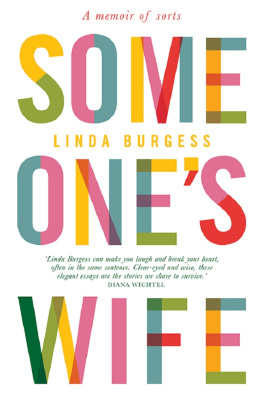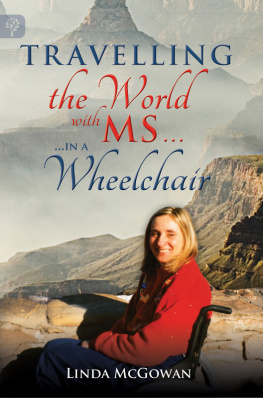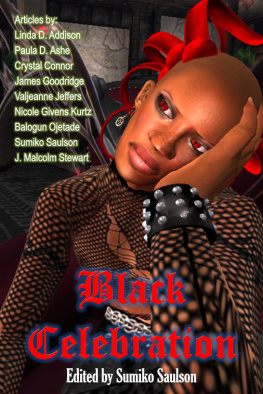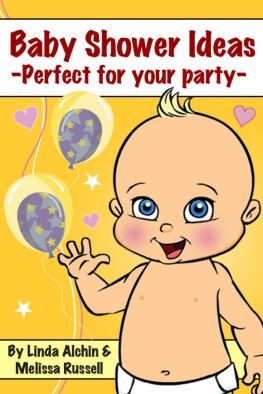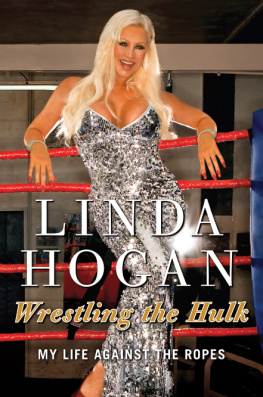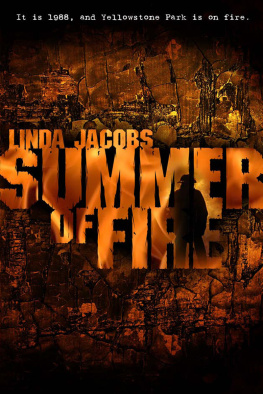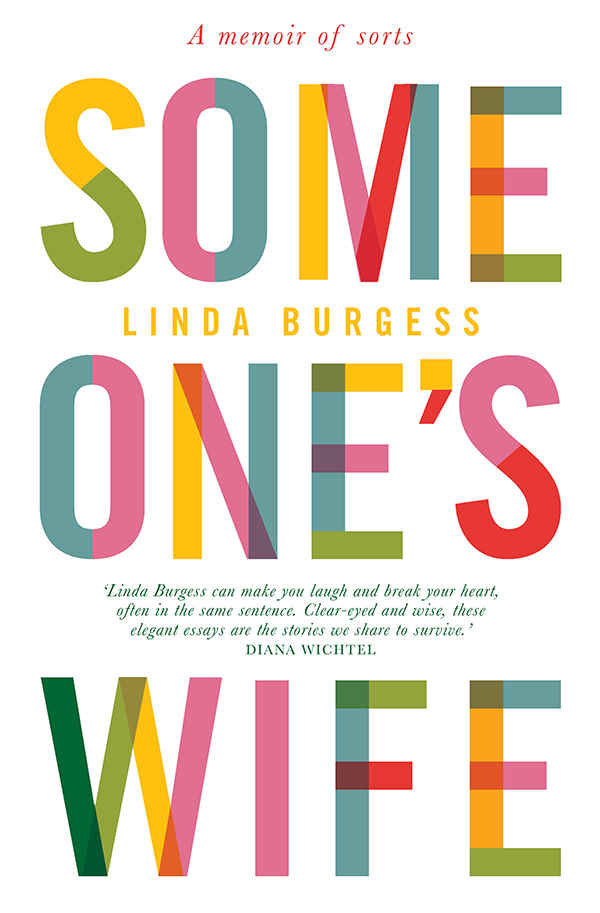
Years ago, I was in a lift at Creative New Zealand in Wellington with two of New Zealands most prestigious writers: Dame Fiona Kidman and Owen Marshall. If this lift crashes, I said, they should accept that the person who will get mentioned first in the news will be me: the wife of an ex-All Black. Owen, usually astute but at times ludicrously modest, said five of his most nonsensical words ever: And so it should be.
My father had died before I published my first novel in 1994, but had he lived I doubt he would have said to me what he said to Robert when he got into the All Blacks: When you die, theyll put your name in the paper. In Dads world, this was the highest accolade, given only to those who deserved it. And those who deserved it most were men who could be thrown face down in the mud without flinching.
Im a writer not because I want my name in the paper but because the two things Ive always loved most are reading and discussing other people. Gossip is much maligned. Theres nothing that beats settling downpreferably feet up on a comfortable sofawith a perceptive friend, and going hard at it about that infinitely fascinating subject, the human condition. The only thing that equals talking about other people is reading and of course writing about them. Hell may well be other people, but heaven is too.
Ive been lucky to be able to use this interest professionally, having spent decades teaching literature, and writing book, television and film reviews. Im always interested in character above plot. Who cares if someone does something if the reader or viewer cant be presented (as subtly as possible) with a person with interesting, credible layers?
Plot is not story: stories I cannot do without. If they dont come to us perfectly formed, which they only rarely do, then we weave them from what we have. Humans are at their centre. Stories unite us: without them, we wouldnt have a past; without them, the present would be untethered, the future even more unimaginable. We need them to make even some sense of the absurdity of life.
This is why I think of this book as a memoir of sorts. Of course its linked to my life and whats happened to me, but I hope its not a self-centred what-I-did-next kind of story. I intend these essays to be a sidelong glance at the times in which Ive liveddecades of extraordinary change. When, in my early teens, living above the bank that my father managed, I went downstairs in the evening to type out my stories, I certainly couldnt have imagined being able to write a novel on a computer or even, should I be foolish enough to wish to do so, on a tiny machine thats also a phone. I could not have imagined a machine that not only remembered all I wrote but could also, irritatingly, change words because it assumed it knew what I wanted to say better than I did.
Secrets still existed back then, and every family had them. Now much of the world is like Ive always been: generally hopeless at keeping them. I shouldnt admit this, because once before when I did, it caused one of my best sources to threaten never to tell me anything again. In my own defence, I show discretion: I dont blab. Which is why, though Ive generally used peoples real names, Ive made an exception when it comes to a vulnerable, tragic schoolgirl.
Two of these essays have previously appeared in the gratifyingly young and cool online journal The Spinoff. Im grateful to the books editor at the time, Steve Braunias, who was interested not only in what I had to say but also in how I said it. He has an astute eyeand earfor what makes a piece of writing work, and I thank him for valuing my writing, and his insightful encouragement. I thank my friend Raewyn Bright for her unstintingly enthusiastic reading. I also thank North & South magazine for publishing the essay written as a result of the wonderful Darcy Residency, which gave me three misspent months on Waiheke Island. Robert was with me: someones husband.
I thank Jenny Hellen and her team at Allen & Unwin for suggesting that I write this book for them to publish; and as does every writer in New Zealand who has the benefit of her immense skill, I thank editor Jane Parkin.
A rugby game lasts a whole day. Your father wears a gaberdine raincoat and takes the family to the rugby grounds in New Plymouth. Rugby Park. You have to get there early to get a good spot on the terraces. So first you watch tiny little boys milling around the field without much of a clue, then bigger boys, from New Plymouth Boys High, then a curtain raiser with grown-ups, then at last its Us, playing to keep The Shield. Dad is on his feet. Ref! Ref! Tackle him low! Off! Off!
There mustve been a packed lunch. Bacon and egg pie? There were probably Minties. And we must have set up a continuous match-spoiling whine, because next time theres a game Dad relinquishes his fantasy of a happy family having fun together at the footie and were dropped off at the picture theatre. There is a mass of other rugby orphans. Towards the end of Robin Hood a printed page briefly overtakes the screen. The feet of those among us who can read drum excitedly. We have won. We have kept The Shield.
Did We win? I ask Robert if the Hurricanes are playing. But We is a shallow word now. In Taranaki We work on the local farms, in the freezing works, teach in the local schools. We have surnames that I recognise. We arent paid lots of moneyany moneyto move Our families from somewhere else in the world.
Our friends have a car radio. Were on our way back from a rugby game in Feilding, and we turn on the news and hear Robert has been selected to play against the Lions. Its unexpected: hes been in the early trial, and isnt in the Possibles vs the Probables. Miss Tomlinson, senior mistress at Palmerston North Girls High, where Ive been teaching for the few weeks weve been married, says to the girls gathered in the assembly hall on Monday morning that Mrs Burgess is such a good coach her husband is in the All Blacks.
The DIC department store in Palmerston North has an almost life-sized photo of him in their window, scoring a try. Hes Our Boy!
One of the girls in my 4th Form English class tells me shes heard another girl saying, Your husband, he thinks hes shit hot.
I go down to Wellington to watch a test match, and my friend Sue and I call in on Robert at his hotel. When we ask where his room is, the lift man wont take us up. But Im his wife, I say, cravenly. If we let you in, he says, who knows where itll end?
Partway through the game someone is knocked out and lies on the ground, so flat he can hardly be seen. Number 10 isnt anywhere. They put the player on a stretcher and cover him with a blanket. A man behind says, Looks bad. It is number 10. I scream. It sounds odd even to me, that scream. Cinematic. The man says, Oh shut up, you silly bitch. Its my husband, I say, and his wife gives him a hard well-thatll-teach-you whack with her elbow.
A chubby boy in a St Johns ambulance uniform is sent to find me in the crowd. Make way for Mrs Burgess. Make way for Mrs Burgess. The crowd parts respectfully, mentally composing the story theyll tell their workmates on Monday. Im nearly at the bottom of the stand where his body has been taken when the man on the loudspeaker announces Bob is just fine. Theres a roar of relief and just a hint of disappointment.
The next day at the hospital his bed is surrounded by men in white coats with stethoscopes around their necks. I feel the nausea of fear, but as I go in I can see theyre all smiling and hes holding court from his bed. Hes wearing hospital pyjamas.
We have our photo in the paper, me at his bedside. The papers make quite a thing of the fact that several of the Lions have visited him in hospital. The British press have taken a shine to him. Theres a profile in
Next page
